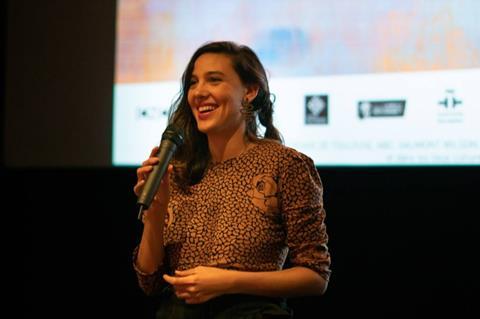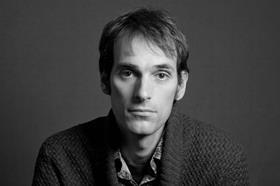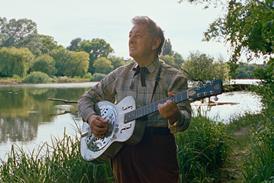
San Sebastian’s Europe-Latin America Co-Production Forum, (September 19-21) has become a key part of the festival’s industry programme.
Together with the Horizontes Latinos sidebar, the WIP Latam platform and the extensive Latin American presence in the festival’s other sections, the Forum has helped to cement San Sebastian’s reputation as an important bridge to Europe for Latin American industry filmmakers and executives.
This year, there are 14 projects taking part, among them features by Ulises Porra, Beatriz Seigner and Rodrigo Ruiz Patterson.
The aim is for European producers to connect with Latin American projects and producers and vice versa. Projects must have around 20% of financing secured and backing from a national fund or film institute.
“We look for original proposals, certain geographical balance among countries and in gender terms,” explains Javier Martín, the festival’s delegate for Latin America. ”And a diversity of movie typology …Our aim is that no accredited player fails to find a film which does not fit their editorial lines.”
Argentina has the largest presence at the Forum with seven titles, of which it is the lead producer on five. Chile and Mexico have two each, while Brazil, Dominican Republic, Colombia, Costa Rica and Spain have one project apiece.
Budgets range from €100,000 to €1.9m, with an average of €800,000.
Martín says the projects are now more developed than they used to be. “More projects come even with two production companies attached… French producers, for instance, search for products in writing labs, at an earlier stage than before, and they expect to find more developed proposals in platforms such as the Forum.”
France is the country that sends most professionals - buyers, producers and distributors - to the event.
According to Martín, most buyers attend the Forum looking for fiction rather than documentary. Female perspectives are highly sought after. Genre projects are also in demand. “We’ve seen that a genre project [taking part in the Forum] filled its schedule right away,” Martín reveals.
Project highlights

Niles Atalla’s The Fire Doll and Mariano Luque’s Inspection Of Earth fit into the genre category. Chilean-US director Atallah’s project is a drama with elements of fantasy and terror about a nine-year-old girl discovering a terrible secret from her father’s past. Luque’s project is a sci-fi with humorous touches, revisiting the themes of Invasion Of The Body Snatchers – something very different to his previous relationship drama Salsipuedes.
Meanwhile, Patterson’s The General’s Daughter, produced at Gael García Bernal and Diego Luna’s La Corriente Del Golfo, is a Western set during the Mexican revolution.
Historical dramas filmed in a minimalistic and contemporary way are also a trend. For example, Porra’s Bajo El Mismo Sol is set in 1820 and narrates the efforts of an army deserter and a Chinese woman to start up a factory.
Other highlights include Sofía Quirós’ Madre Pájaro and Beatriz Seigner’s The Blue Flamingo. As two directors with very strong debuts - Land Of Ashes and Los Silencios respectively - expectations are high for their next projects.
The renowned Clarisa Navas dives once again into teenage crisis as she did in her previous films. This time, Navas scrutinises awareness of queer issues in a rural environment in They Burn In The Same Way.
Gender parity
Over 200 submissions are received every year for the Forum, with Argentinan projects consistently predominating. The projects are shortlisted by Martín, Chilean producer Agustina Chiarino and Esperanza Luffiego of the festival’s main selection committee. This year, seven female directors have been chosen alongside seven male directors, although male directors predominate in total submissions, and even more so in production.
Launched back in 2012, the Forum kicked off a year after José Luis Rebordinos was appointed festival director of San Sebastian.
“I believe that we have clearly made two positive moves in these past years: one is the determined commitment to the industry. We have gone from having 500 participants accredited to 1,900 in 2019. San Sebastian has become a place where business is done and talent is sought,” says Rebordinos. “The second hit is Zinemaldia 365,” he adds, referring to the festival’s ambition to have a year-round presence through activities such as the Elias Querejeta Film School and mentorship programme Ikusmira Berriak.

























No comments yet